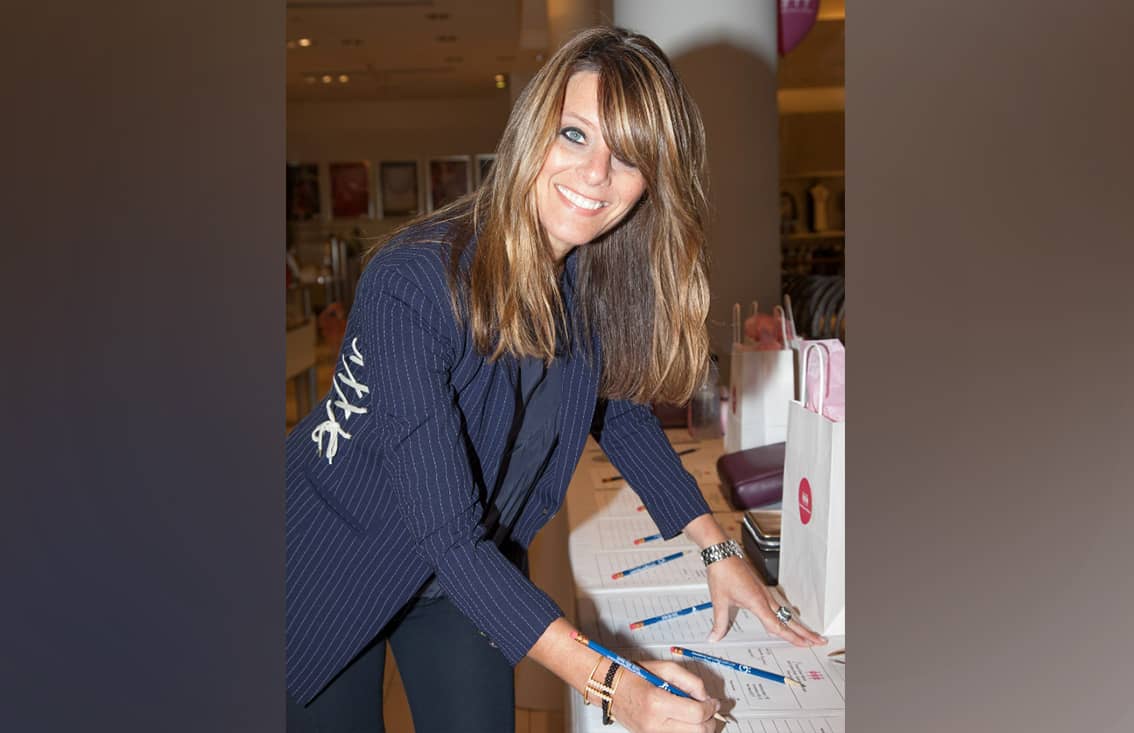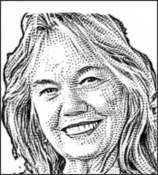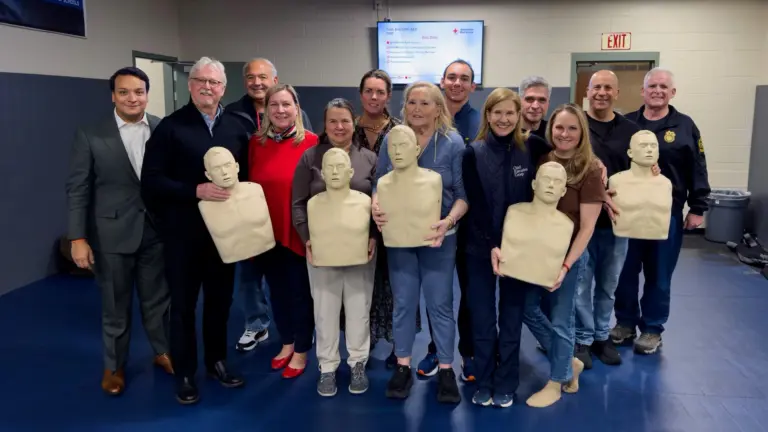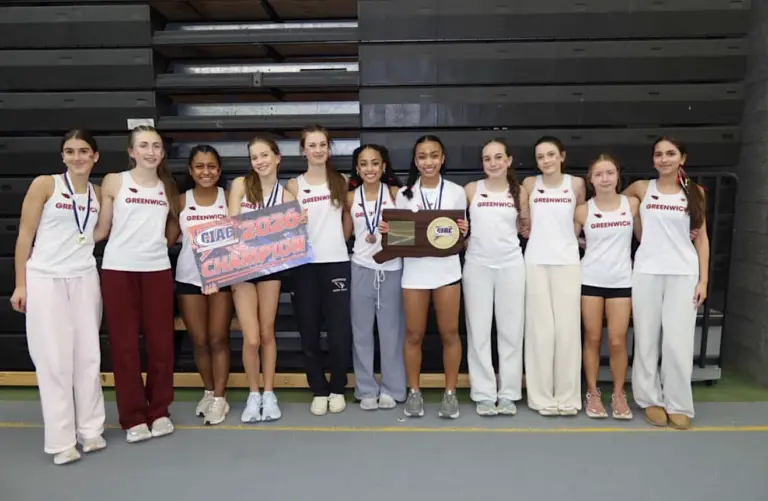
 By Anne Semmes
By Anne Semmes
Hidden behind Second Congregational Church, in a small office in a little fieldstone house is a national fundraising powerhouse called the Breast Cancer Alliance (BCA), run by its executive director, Yonni Wattenmaker. In her 10 years as director Wattenmaker has navigated the Greenwich grown BAC into a national force for support in the breast cancer field.
“Our mission hasn’t changed,” says Wattenmaker. “From its inception, it has been to improve survival rates and quality of life for those impacted by breast cancer through better prevention, early detection, treatment, and cure.” To the tune of $30 million raised over those 25 years in aid of research and education and raising up the best medical professionals to treat those with breast cancer.
BCA has come a long way from six dedicated Greenwich women hosting Neiman Marcus fashion shows to bring the important focus on the need for support and a cure, especially for the one in eight women diagnosed with breast cancer – with higher odds in Fairfield County.
“We don’t know the why of those higher odds,” says Wattenmaker. “We’re trying to find out the why. There are people who will say it’s high stress, its type A personalities, maybe it’s something in the water. But nobody actually knows the answer. Certainly, if you go over the border to New York, the cases aren’t as prevalent as in Connecticut.”
The good news is that breast cancer survival rates have gone from 75 to 90 percent since BCA’s founding, with its pledge now for 100 percent breast cancer survival by year 2030. “We are proud to have played a role in helping so many women live longer, better lives,” says Wattenmaker, “but that’s still not enough.”
Following BCA Funding
So, to where does BCA direct its funding? “Up to about a quarter of our funding, we restrict to what we call education and outreach grants. And those we only give to Connecticut and Westchester County -we want to be sure that we never lose sight of where we were born and bred. Funding underserved patients throughout Connecticut and in Westchester just south of us is really important to our mission.”
Another quarter of BCA funding she says goes to breast surgery fellowships. “We are the only organized breast cancer foundation in the country who funds fellowships for breast surgeons. And the purpose of those fellowships is to give specialized training at some of the best institutions in the country to people who want to be breast surgeons. So, they have the best skills – they can get the best advice, and those we also only fund in New York, New Jersey or Connecticut.”
That other half of BCA funding for research has a broader reach. “We’ve funded for a year Nora Disis’ s breast cancer vaccine research at the University of Washington. Her vaccine program, while it’s incredible and helping already to save and prolong lives, you still have to have had breast cancer for the vaccine to work. And we fund MIT computer scientist Regina Barzilay who’s working with artificial intelligence to try to spot tumor development earlier because if breast cancer is caught early, it has a 90 percent survival rate.
“So, if we can’t stop breast cancers from occurring, if we can at least catch them earlier, then your chances of survival are exponentially greater. And it can be a chronic disease or you could be in remission as opposed to metastatic disease which still affects about 30 percent of people who are diagnosed.”
BCA Inclusive Outreach
Wattenmaker notes that men also get breast cancer. “So, part of what we try to educate about is this isn’t just a women’s disease, though more prevalent for sure.” Men account for one in about 833 diagnoses she tells, including her grandfather! “So, he was diagnosed at 40. They did a mastectomy on one side – they removed one lymph node They told my grandmother he had four to six months to live. He did not do any chemotherapy. He didn’t do radiation. It never came back. He lived to be 97, thank God!”
That BCA educational outreach is vital she says. “When we do our wellness classes, when we hold these medical symposia, that’s our commitment to educating not only an underserved community but also other communities who have access but don’t have the education.” She adds, “If you live in Greenwich, and you can afford your health care, it still doesn’t mean that you know the best way to take care of yourself. Do you know when you should be getting genetic screening, or at what age you should start a mammogram? And how much of it is family history? So, our commitment is not only to ask the donors who can afford to to give us financial support but also to give them something in return. And while we can throw great parties and golf outings, we also want to provide education, to which everyone has access.”
Hence the difficulties brought on by Covid. “If you think about who’s underserved and the kinds of places that they were working, whether it’s factories or restaurants, or movie theaters or gas stations. Those were the jobs that were eliminated during COVID, because people weren’t going out. You don’t want finances to be the barrier for somebody’s access to care,” she notes, “so that’s where our grants come in, to at least help eliminate that barrier and get more people into the care they need.”
Challenges of Covid
But getting the help they needed was also blocked by Covid. “Unless you had a breast cancer emergency or were already in treatment, a lot of the services related to breast cancer and other nonessential medical services were closed for at least six months during COVID. So, then you have people who didn’t go get their mammograms, or maybe felt it wasn’t urgent and it could wait. And now are afraid to go back until they’re vaccinated. And let’s say they haven’t seen their doctor for maybe a year and a half. Things could have developed that could have been stopped.”
And Covid took away that BCA fundraising arm. ‘We did our annual gala virtually.” But, she adds, “We actually did remarkably well. And still managed to have a very good year. We still gave a million dollars in grants, which is pretty amazing. We want this year to bring us back to where we were or better. We’re hoping to have at least part of our Oct. 20 event in person.”
Wattenmaker is thanking her lucky stars. “The people who I’ve had the privilege to work with through this organization are all there for the right reasons. They want to see an end to breast cancer, they all want to help improve outcomes.” She delights in “seeing the progress of what BCA has been able to accomplish – to go from what started as a small Greenwich organization to one of the most prominent national breast cancer foundations in the country over these last 10 years. We have the highest rankings on Charity Navigator and GuideStar, and support from all over. How many people go to work every day and have somebody say, thank you for getting my mom in to see that doctor, thank you for recommending where I could get a wig, or thank you for sending me to that person who knows what I’m going through. That’s the best.”



